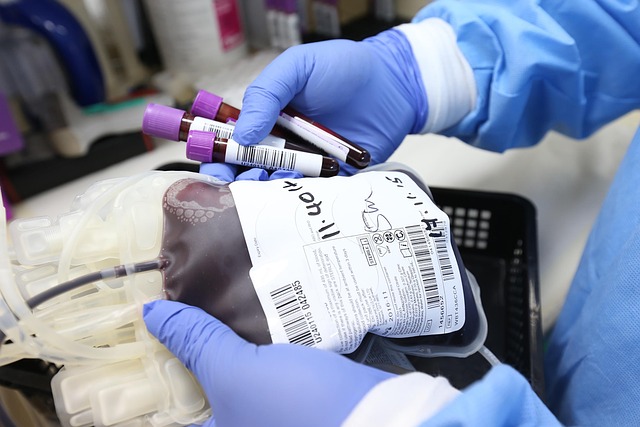Early Warnings of Primary Immunodeficiency That Often Go Unnoticed
Primary immunodeficiency disorders affect millions of Americans, yet many cases remain undiagnosed for years. These genetic conditions weaken the immune system's ability to fight infections and diseases, leading to recurring health issues that patients and healthcare providers might attribute to other causes. Understanding the subtle early warning signs can be crucial for timely diagnosis and treatment, potentially preventing serious complications and improving quality of life.

Primary immunodeficiency represents a group of genetic disorders that compromise the immune system’s natural defense mechanisms. Unlike secondary immunodeficiency caused by external factors, these conditions are present from birth and can manifest at various stages of life. The challenge lies in recognizing symptoms that often mimic common illnesses, leading to delayed diagnosis and treatment.
Early Signs Of Primary Immunodeficiency In Adults
Adults with undiagnosed primary immunodeficiency often experience a pattern of recurring infections that seem disproportionate to their lifestyle or exposure risks. Frequent respiratory tract infections, including pneumonia, bronchitis, and sinusitis, may occur multiple times per year. These infections often require stronger antibiotics or take longer to resolve than typical cases. Chronic fatigue and unexplained weakness frequently accompany these infections, creating a cycle of illness and recovery that significantly impacts daily functioning.
Skin infections, including recurrent abscesses, cellulitis, or persistent fungal infections, can also signal underlying immune dysfunction. Many adults dismiss these symptoms as stress-related or attribute them to aging, environmental factors, or busy lifestyles. However, when infections occur with unusual frequency or severity, they warrant investigation for potential immunodeficiency.
First Warnings of Primary Immunodeficiency In Women and Treatment
Women may experience unique manifestations of primary immunodeficiency that can be overlooked or misattributed to hormonal changes or reproductive health issues. Recurrent urinary tract infections, vaginal yeast infections, or pelvic inflammatory disease may indicate compromised immune function. These conditions often resist standard treatments or return shortly after completing antibiotic courses.
Autoimmune complications frequently accompany primary immunodeficiency in women, including thyroid disorders, inflammatory bowel conditions, or joint problems. The interplay between hormonal fluctuations during menstrual cycles, pregnancy, or menopause can mask or complicate the recognition of immune system dysfunction. Women may also develop unusual reactions to vaccines or experience prolonged illness following routine immunizations.
Treatment approaches for primary immunodeficiency vary depending on the specific disorder and severity. Immunoglobulin replacement therapy represents a cornerstone treatment for many conditions, providing antibodies that the body cannot produce adequately. This therapy can be administered intravenously or subcutaneously, typically on a regular schedule determined by individual needs and response.
First Signs of Primary Immunodeficiency
The earliest indicators of primary immunodeficiency often appear subtle and non-specific, making recognition challenging for both patients and healthcare providers. Delayed healing of wounds or cuts, even minor ones, can signal immune dysfunction. Similarly, unusual or severe reactions to live vaccines, prolonged illness following vaccination, or failure to develop immunity despite vaccination may indicate underlying problems.
Gastrointestinal symptoms frequently accompany primary immunodeficiency, including chronic diarrhea, malabsorption, or inflammatory bowel conditions. These digestive issues often develop gradually and may be attributed to dietary factors, stress, or other gastrointestinal disorders. However, when combined with recurrent infections or other immune-related symptoms, they may point toward immunodeficiency.
Family history plays a crucial role in identifying potential primary immunodeficiency. A pattern of unusual infections, autoimmune diseases, or early deaths from infectious complications among relatives can provide important clues. Genetic counseling and testing may be recommended when family history suggests hereditary immune disorders.
| Treatment Type | Provider/Facility | Cost Estimation |
|---|---|---|
| Immunoglobulin Therapy | Hospital Infusion Centers | $3,000-$8,000 per month |
| Specialized Immunology Consultation | Academic Medical Centers | $300-$800 per visit |
| Genetic Testing | Commercial Laboratories | $500-$3,000 per panel |
| Bone Marrow Transplant | Major Medical Centers | $200,000-$800,000 total |
Prices, rates, or cost estimates mentioned in this article are based on the latest available information but may change over time. Independent research is advised before making financial decisions.
Diagnostic Challenges and Healthcare Navigation
Diagnosing primary immunodeficiency requires specialized testing that goes beyond routine blood work. Immunoglobulin levels, lymphocyte subsets, and functional immune tests help identify specific defects in immune system components. Many primary care providers may not immediately consider immunodeficiency as a potential cause of recurrent infections, leading to referrals to multiple specialists before reaching an accurate diagnosis.
The diagnostic journey often involves infectious disease specialists, immunologists, and sometimes genetic counselors. Patients may undergo extensive testing to rule out other conditions before confirming primary immunodeficiency. This process can be lengthy and emotionally challenging, particularly when symptoms significantly impact quality of life.
Early recognition and treatment of primary immunodeficiency can prevent serious complications, including organ damage from chronic infections, development of autoimmune conditions, or increased cancer risk. With appropriate management, many individuals with primary immunodeficiency can lead relatively normal lives, though they require ongoing medical supervision and may need to take additional precautions to avoid infections.
This article is for informational purposes only and should not be considered medical advice. Please consult a qualified healthcare professional for personalized guidance and treatment.




